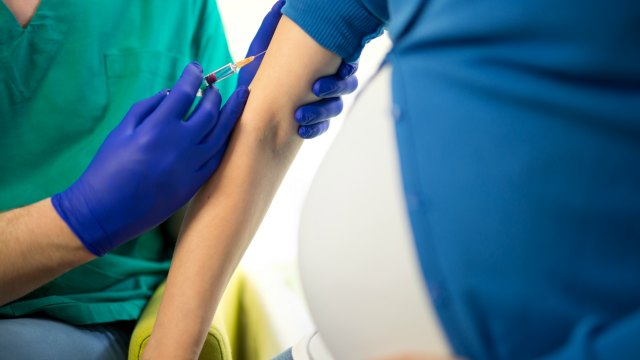 ISTOCK, JOVANMANDICFrom a study of more than 400,000 babies, researchers report in Pediatrics this week (February 20) that influenza and whooping cough vaccines are safe during pregnancy. The children of moms who received the immunizations while expecting had no higher risk of hospitalization or death in the first six months of life than kids of other moms.
ISTOCK, JOVANMANDICFrom a study of more than 400,000 babies, researchers report in Pediatrics this week (February 20) that influenza and whooping cough vaccines are safe during pregnancy. The children of moms who received the immunizations while expecting had no higher risk of hospitalization or death in the first six months of life than kids of other moms.
“The fact that the authors found no reason to believe exposure to vaccines during pregnancy caused serious harm to infants in the first six months of life is reassuring,” Annette Regan, a public health researcher at Curtin University in Australia, tells Reuters by email. “While other studies have looked at hospital admissions, this is the first study to evaluate the impact on mortality.”
Public health officials already recommend that pregnant women receive the flu and so-called Tdap (tetanus toxoid, reduced diphtheria toxoid, and acellular pertussis) vaccines. For this study, the researchers examined 413,000 babies’ medical records collected from a number of healthcare systems. While more than 25,000 babies ended up going to the hospital before six months of age and 157 babies died, the authors ...




















